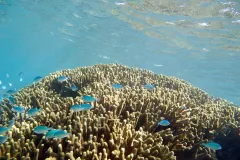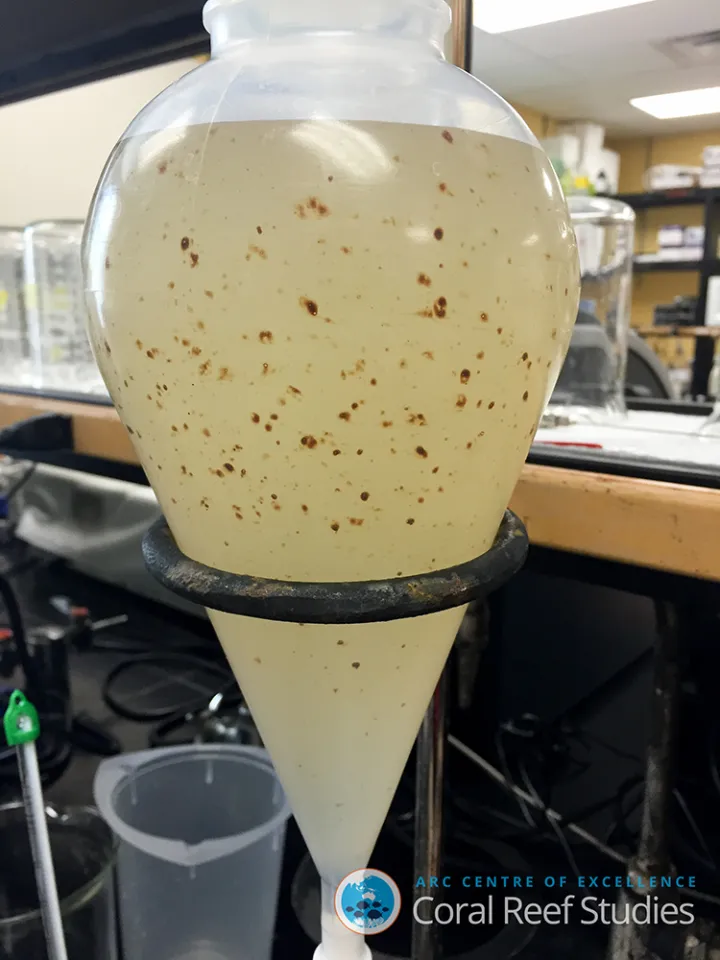Fish Get Risky Around Oil

Whether you are fish or human, taking risks is a part of life. But what happens when your inhibitions are lowered? In one study scientists found that zebra fish swimming around in water spiked with ethyl alcohol are less afraid of predators—for example, they’re much slower to retreat from an attack by a robotic heron. Meanwhile, seeing other zebra fish makes them hyperactive. If you put one exposed zebra fish together with four unexposed ones, it will start swimming quickly around the tank, overreacting to the presence of other fish. Crazier yet, the other fish will be inspired to follow it.
Alcohol isn’t the only chemical that can mess up fish behavior. Scientists studying ocean acidification, which is caused by carbon dioxide emissions, have found that fish swimming in low-pH waters are less afraid of potential predators, just like the fish exposed to ethyl alcohol. And now, a new study documents something else that’s capable of befuddling fish—oil.
Oil gets dumped into the ocean at a rate of 343 million gallons a year. It gets spilled from tankers and barges, leaks out of pipelines, escapes from underground tanks, seeps out from the sea floor and—once in a while—it gets released millions of gallons at a time in an enormous spill. Specifically, fish are affected by certain toxic chemicals in crude oil, which humans release into the ocean all the time from cities, industrial shipping lanes and drilling exploration operations.
Both ethyl alcohol and oil make fish slow to respond to predators and more likely to take risks. Unfortunately, oil-addled fish don’t “sober up,” unlike zebra fish who have been given ethyl alcohol, which get back to normal behavior after a day. And the persistent increased risk-taking of oil-exposed fish might lead them to an early, untimely demise.
Working with six different species of fish from Australia’s Great Barrier Reef, scientists found consistent—and discouraging—results. After being exposed to oil, juvenile fish exhibited behavioral defects that made it much more difficult for them to survive. Confronted with predators, they were less likely to seek shelter or flee into the company of other fish, and they were more likely to take risks that put their lives in danger. For a growing fish, crude oil exposure is really bad news. Even worse, the effects on fish behavior happen at quite low concentrations of oil, as little as the equivalent of a few drops in a swimming pool.
And what’s bad news for fish is often bad news for the rest of the ecosystem. On coral reefs and elsewhere, fish are important links in the food chain that sustains higher-order predators (including humans) and keeps everything in balance. Worse, what affects fish might also affect other marine organisms—particularly those with a vulnerable larval stage, which includes everything from sea stars to snails to anemones. Based on this new research, scientists will have to keep an eye out for brain-related behavioral problems in fish exposed to oil as well as the other organisms they study. Better understanding these behavioral defects could be one part of the solution—although, of course, it doesn’t address the oily source of the problem.
---
The Ocean Portal receives support from the Gulf of Mexico Research Initiative (GoMRI) to develop and share stories about GoMRI and oil spill science. The Gulf of Mexico Research Initiative (GoMRI) is a 10-year independent research program established to study the effect, and the potential associated impact, of hydrocarbon releases on the environment and public health, as well as to develop improved spill mitigation, oil detection, characterization and remediation technologies.
For more information, visit http://gulfresearchinitiative.org


